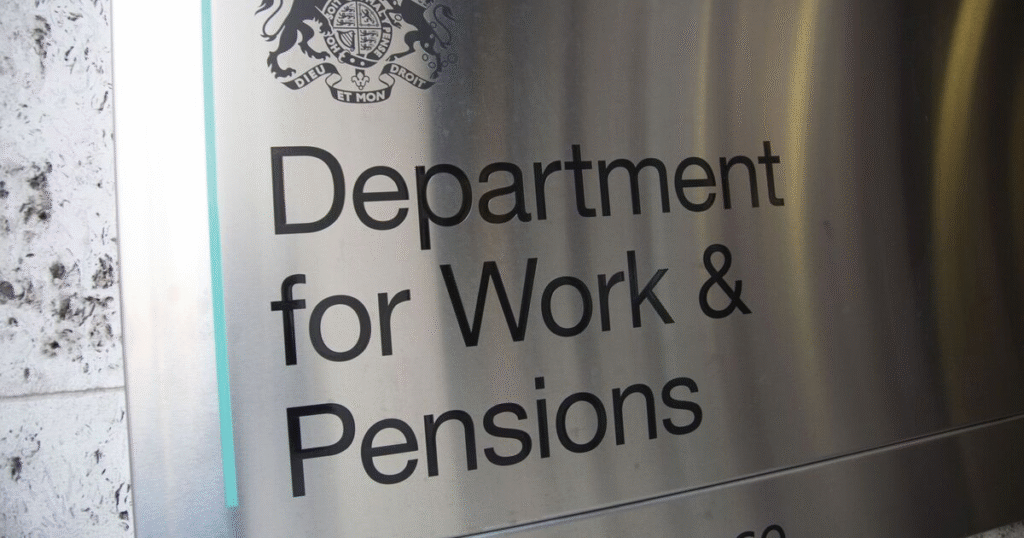Personal Independence Payment (PIP) is a lifeline to millions of disabled individuals and persons suffering from long-term health conditions in the UK. Changes by the Department for Work and Pensions (DWP) have caused quite a commotion across the land. The reforms in question could signal a departure from cash payments directed to recipients and towards vouchers, lump-sum payments, or some other form of disbursement. This article seeks to identify these changes, interpret them for PIP recipients, and provide some useful practicalities in how to live effectively with the new system.
Major Changes to DWP PIP Notification to the UK
PIP changes have raised heated debates, and most people are indeed jostling for space in the airwaves with arguments about the ramifications of this reform on the lives of disabled people in the UK. While the DWP has defended its changes as more concretized, it is quite evident that there are huge fears regarding a voucher or one-off payment arrangement. So ensure that if you’re a PIP claimant, you’re up to date and involved in the consultation process so that your circumstances are heard and taken into account.
| Key Details | Information |
|---|---|
| PIP Proposed Changes | Replacing regular cash payments with vouchers or one-off payments. |
| Affected Groups | PIP claimants in the UK, particularly disabled people and those with long-term conditions. |
| Financial Impact | Up to £737.20 per four weeks replaced by support in-kind like vouchers. |
| Timeline | Changes are still under consultation; implementation dates are unclear. |
| Alternatives | Receipt-based reimbursement, vouchers, or product catalogues for support aids. |
| Official Sources | DWP PIP Information |

What Is PIP and Why the Changes?
Personal Independence Payments are a benefit to the sick or disabled regarding the extra costs incurred because of long-term health conditions or disability. It runs from 16 to 64 years and requires an assistance grant for activities of daily living (practical) or mobility problems. The current maximum payment for PIP ranges from 737.20 Pounds sterling within a period of about four weeks, depending on the claimant’s needs.
For some time now, the UK Government has been examining the social welfare system; the aims and objectives here have been toward establishing a much better-focused and efficient welfare system. Some of those recently significant proposals in the “Modernising Support Green Paper” seem set to make it to change the system of distribution of PIP. One major idea is replacing regular cash disbursements with either a voucher system, one-off payments or a receipt-based reimbursement scheme.
These changes have been envisaged owing to a more individual tailoring of support closer to people’s needs, ensuring fairness, and that misuse is avoided. According to DWP, cash has been in vogue for decades since the 1970s; new approaches could be more effective in giving disabled people what really matters to them.
What Changes Are Being Proposed?
The proposed changes include:
1. Change in Cash Payment Basis
Instead of receiving regular PIP payments, the recipients may get vouchers to meet specific costs regarding their condition, such as groceries, utilities, or transportation.
2. One-off Grants:
Some claimants may receive one-off payments for large expenses, such as home adaptations or expensive medical equipment, rather than receiving regular support.
3. Receipt Reimbursement System:
Another idea is to have claimants buy what they need and then reimburse them by submitting receipts. This is aimed at ensuring that the money is spent directly on aids, appliances, or services needed.
4. Support through Catalogues:
A system of catalogues could indeed allow recipients to select specific aids and appliances, which would be provided directly rather than as a cash allowance.
What Changes for PIP Claimants?

For PIP cash payment recipients, such proposed changes may mean radically different ways of managing their finances and covering essential costs. The government argues that such a scheme would ensure that support becomes more targeted; however, claimants express fears that their choices will be limited.
For instance, vouchers may restrict how and where people spend their money. Some recipients may find it more challenging to store savings for emergencies or extend financial support to family members. Rather, one-off payments might not afford the continuance that is needed for day-to-day living costs.
What Are the Concerns?
There has been a mixed response to these proposed changes, some fearing that they will take away the independence of PIP recipients. Critics claim that cash allows the person the flexibility to determine how best to expend the money based on his/her own circumstances. Vouchers, on the other hand, may be too restricting.
Some others worry that a receipt-based system may add layers of bureaucracy, forcing people to deal with difficult reimbursement practices while their money is tied up.
Apart from this, charities and advocacy groups are worried about the increase in disturbances. Many disabled people spend their PIP payments on essential services that are not covered by cash, grocery items, or home heating. Without cash payments, they will suffer to much in other areas.
While Making Changes, Why Would the Government?
The DWP argues that the changes would make the system more sustainable in the long run. The government hopes to reduce unnecessary spending while ensuring that the most needy get help by targeting support toward the actual needs of disabled people.
Another aim of these changes is to avoid misuse of the system. The cash-based system has sometimes been criticized as vulnerable to fraud or misuse, with allegations that funds have not been spent on essential needs.

Finally, the government is interested in cutting administrative costs via a reduction in the existing assessment protocol. The DWP is looking to create an efficient system by amending the eligibility criteria or even eliminating assessments for some people.
What Should PIP Recipients Do?
If you are receiving PIP now, you should know all about these proposed changes. The reforms are still under consultation and will impact how you receive your benefit in not-too-distant a future, if at all.
Here is what you should do to brace yourself:
- Stay Informed: Keep a lookout for the DWP’s official word. On the DWP website, you can get all the updates on the proposed changes.
- Participate in the Consultative Process: The government is keen on getting your comments on the proposals, so make them count. This is your opportunity to participate in the consultative process and relay your experience with the present PIP system.
- Prepare: If these changes concern you, now is the time to put together a plan. For instance, if you pay for certain expenses from your PIP payments, think about how the voucher or reimbursement system would change your management.
- Get Help: Seek guidance from a welfare rights adviser or a charity that works with people with disabilities if you are in doubt about how these changes will affect you. They will be able to help you with any new system that comes in.
FAQs:
What is replacing PIP payments?
The government is considering replacing regular PIP cash payments with vouchers, one-off grants, or a receipt-based system. These changes are still under consultation.
When will these changes come into effect?
The changes are still being discussed, and no specific date has been set for their implementation. It is important to stay informed as more details emerge.
How will vouchers work?
Vouchers would be provided instead of cash, and they could be used to pay for specific costs related to a person’s disability or health condition, such as groceries or mobility aids.
